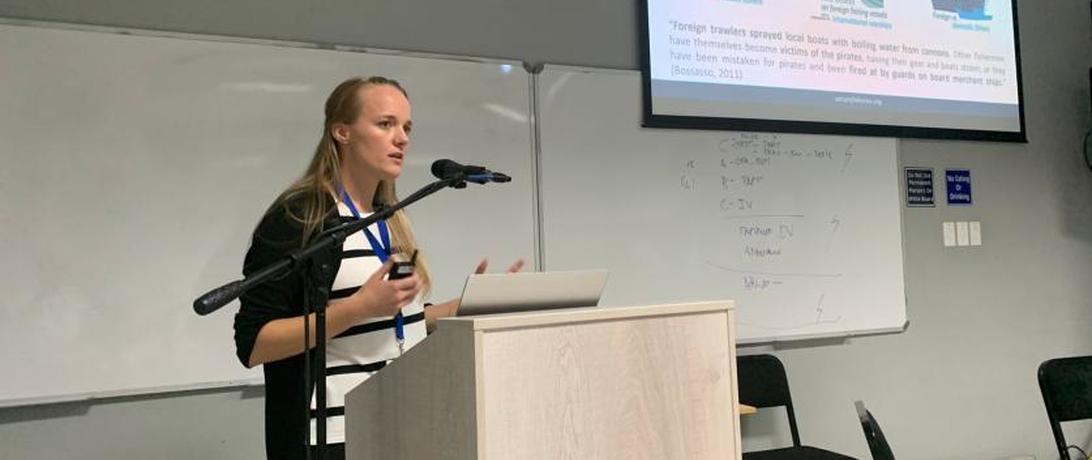The Western Indian Ocean Marine Science Association (WIOMSA) is “dedicated to promoting the educational, scientific, and technological development of all aspects of marine sciences in the Western Indian Ocean region.” The association is a valued partner of Secure Fisheries. It acts as an excellent resource for networking with other fisheries researchers in the Horn of Africa, never more so than during its scientific symposiums — referred to as “the premier regional scientific event on the coastal and marine environment.”
The theme of this year’s conference was “A New Decade of Western Indian Ocean Science,” inspired by the prioritization of ocean health in the UN Sustainable Development Goals, the UN Decade of Ocean Science for Sustainable Development, and the Decade of Ocean Restoration, as well as regional goals. The symposium brought together recent advancements made in ocean and climate science and celebrated early-career scientists joining the effort to address the challenges facing the Western Indian Ocean.
Colleen presented the strategy and successes behind Secure Fisheries’ Project Badweyn, which provides practical skills training for marine science students, while developing a nationalized catch data system – paving the way for better understanding and management of Somali fisheries.
The team’s fisheries conflict research was also shared at the symposium, detailing the evolution of fisheries conflict in Yemen and Somalia from 2018–2020. The presentation shared the data gathered on the violence that occurred towards fishers as a military offensive strategy by both sides in the Yemeni Civil War.
On the final day of the symposium, in a workshop coordinated by the Transform Bottom Trawling Coalition, which aims to end the harm caused by industrial bottom trawling, and attended by the Somali Director General of the Ministry on Environment and Climate, Colleen shared Fisheries Conflict Database analysis and testimonies from Somali fishing communities, documenting the ecological damage and societal impact of bottom trawling, calling to action a change in practice.
The Secure Fisheries presentations were met with enthusiasm and interest by the diverse symposium attendees, due to the previously limited marine data and programming produced in the Somali marine space.
The event provided useful opportunities to meet with collaborators such as Blue Ventures, TRAFFIC, the WWF, and Somali government officials in attendance. New projects that have grown from conversations at the symposium are in development for future implementation.
